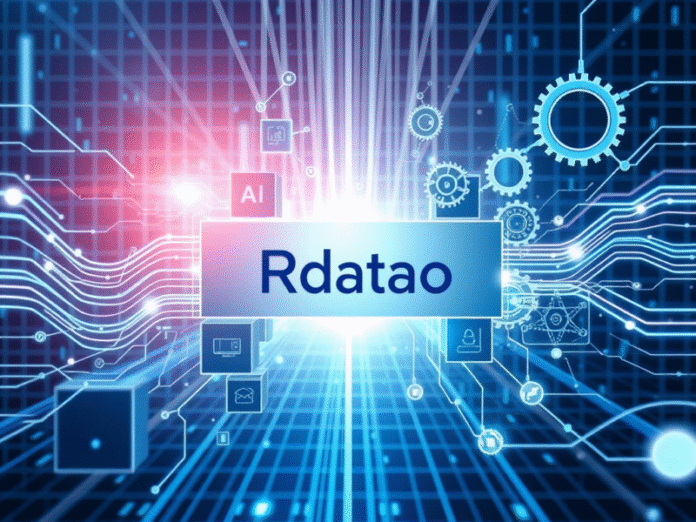In a fast-evolving digital world, new terms and technologies pop up regularly—each holding potential to reshape industries. One such term gaining traction is Rdatao. While it may sound like a tech buzzword, Rdatao is rapidly becoming a focal point for discussions around data intelligence, automation, and innovative frameworks.
But what exactly is Rdatao? What does it represent? And how might it influence our digital and professional futures?
Let’s dive deep into decoding Rdatao—its meaning, origin, applications, and its potential to transform the way we use data.
What is Rdatao?
At its core, Rdatao is a conceptual framework that combines data refinement, automation, and optimization. It focuses on the intelligent transformation of raw data into structured insights, often through machine learning, artificial intelligence, or advanced analytics.
Rather than being a specific tool or software, Rdatao represents a strategic approach to managing and utilizing data more efficiently and effectively.
The Origin and Etymology of Rdatao
The term Rdatao appears to be a compound acronym derived from key concepts:
-
R – Refined or Raw
-
Data – Structured or Unstructured Information
-
AO – Automation and Optimization
So, Rdatao stands for a Refined Data Automation & Optimization process. It symbolizes a shift in how companies collect, process, and act on data—blending technology with human logic to unlock smarter decisions.
Key Features of the Rdatao Framework
What makes Rdatao stand out from traditional data management practices?
1. Data Refinement
Before data can become actionable, it needs to be cleaned, validated, and categorized. Rdatao prioritizes refinement as the first critical step.
2. Smart Automation
Using AI and machine learning algorithms, Rdatao promotes the automation of repetitive tasks like data classification, anomaly detection, and real-time reporting.
3. Predictive Optimization
Once the data is refined and automated, Rdatao enables optimization by anticipating outcomes, reducing resource waste, and enhancing performance.
Why Rdatao Matters in a Data-Driven World
With the amount of data being generated today, businesses can no longer afford to manage data manually or inefficiently. Here’s why Rdatao is crucial:
-
Speed: Faster data processing means quicker decisions.
-
Accuracy: Automated systems reduce human error.
-
Scalability: Rdatao frameworks grow with your data needs.
-
Insights: Real-time analytics lead to deeper business intelligence.
According to IBM, companies that leverage structured data processes gain a competitive edge through better decision-making. Rdatao aligns with this principle, offering a unified path to smarter insights.
Real-World Applications of Rdatao
1. Business Intelligence
Companies use Rdatao to extract actionable insights from CRM data, social media trends, and customer feedback.
2. Healthcare
Hospitals leverage Rdatao to refine patient data, predict health outcomes, and improve diagnostics through automation.
3. E-Commerce
Online retailers apply Rdatao for dynamic pricing, inventory management, and personalized marketing strategies.
4. Finance
Banks and fintech startups employ Rdatao for fraud detection, credit risk analysis, and investment forecasting.
Challenges and Considerations
While the potential of Rdatao is immense, it’s not without its challenges:
-
Data Privacy: Automated systems must comply with regulations like GDPR.
-
Bias in Algorithms: Machine learning models need diverse training data to avoid biased decisions.
-
Infrastructure Costs: Implementing a Rdatao framework requires robust cloud and computing infrastructure.
Overcoming these challenges will be crucial to ensure that Rdatao is used ethically and sustainably.
The Future of Rdatao
Looking ahead, Rdatao is poised to play a major role in digital transformation strategies across industries. As tools become smarter and more accessible, even small businesses can leverage Rdatao to compete on a global scale.
We can also expect low-code Rdatao platforms to emerge, enabling non-technical users to implement automation and optimization strategies without deep coding skills.
Moreover, integration with blockchain, IoT, and real-time analytics will further amplify Rdatao’s impact—paving the way for autonomous decision-making ecosystems.
FAQs
1. What does Rdatao stand for?
Rdatao is a conceptual framework that stands for Refined Data Automation and Optimization, emphasizing efficient data processing and intelligent automation.
2. Is Rdatao a software or a methodology?
Rdatao is not a specific software. It’s a strategic methodology or approach for managing and using data in smarter, more automated ways.
3. How can businesses benefit from using Rdatao?
Businesses can benefit through faster decision-making, better accuracy, cost savings, and deeper insights into their operations.
4. Does implementing Rdatao require AI knowledge?
While advanced Rdatao systems often incorporate AI, many platforms are becoming more user-friendly and require minimal technical expertise to get started.
5. Is Rdatao relevant for small businesses?
Absolutely! With the rise of cloud-based tools, small businesses can also use Rdatao frameworks to refine customer data, automate marketing, and scale efficiently.
Conclusion
As data continues to be the backbone of innovation, frameworks like Rdatao will become essential for organizations that want to stay ahead. Whether you’re a startup, a global enterprise, or a data enthusiast, understanding Rdatao is a step toward a more insightful and efficient future.
By embracing Rdatao, businesses don’t just manage data—they unlock its full potential.


